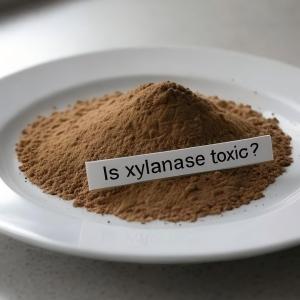Is xylanase toxic?

Xylanase is an enzyme widely used in various industries, including food processing, animal feed, and biofuel production, due to its ability to break down xylan, a major component of plant cell walls. Concerns about its toxicity often arise because of its extensive use in products that humans and animals consume. However, extensive research and regulatory evaluations have consistently shown that xylanase is non-toxic when used within recommended guidelines. Regulatory bodies like the U.S. Food and Drug Administration (FDA) and the European Food Safety Authority (EFSA) classify xylanase as Generally Recognized as Safe (GRAS) for food applications, provided it is produced from non-pathogenic and non-toxigenic microorganisms.
Despite its safety profile, some individuals may worry about potential allergic reactions or sensitivities to xylanase, particularly in occupational settings where workers are exposed to enzyme dust. Inhalation of enzyme particles could, in rare cases, lead to respiratory irritation or sensitization, but these risks are primarily associated with industrial handling rather than consumer exposure. For the general population, xylanase in food products, such as baked goods or animal feed, is broken down during digestion, posing no significant health risks. Studies also confirm that xylanase does not accumulate in the body or produce harmful byproducts, further supporting its safety for widespread use.
In conclusion, xylanase is considered safe for both human and animal consumption when used appropriately in regulated applications. Its benefits, such as improving the texture of bread, enhancing nutrient absorption in animal feed, and supporting sustainable biofuel production, make it a valuable enzyme. For those concerned about its safety, adhering to regulatory standards and proper handling practices eliminates virtually all risks. As always, individuals with specific health concerns should consult professionals, but the scientific consensus supports the non-toxic nature of xylanase in everyday applications.
